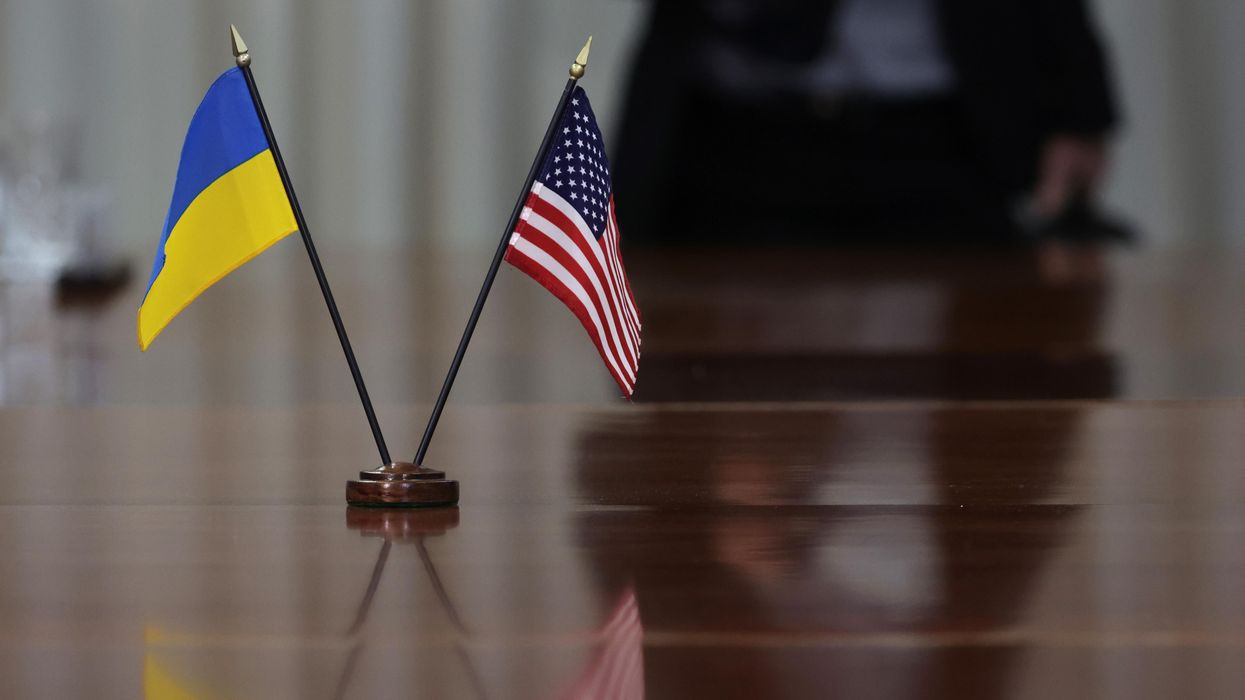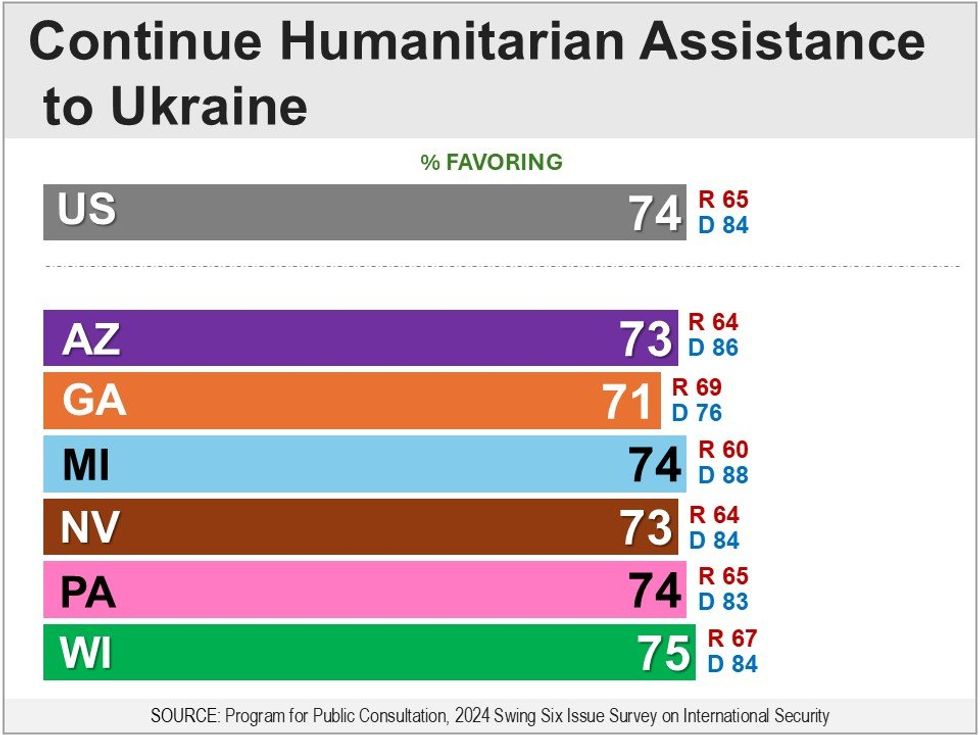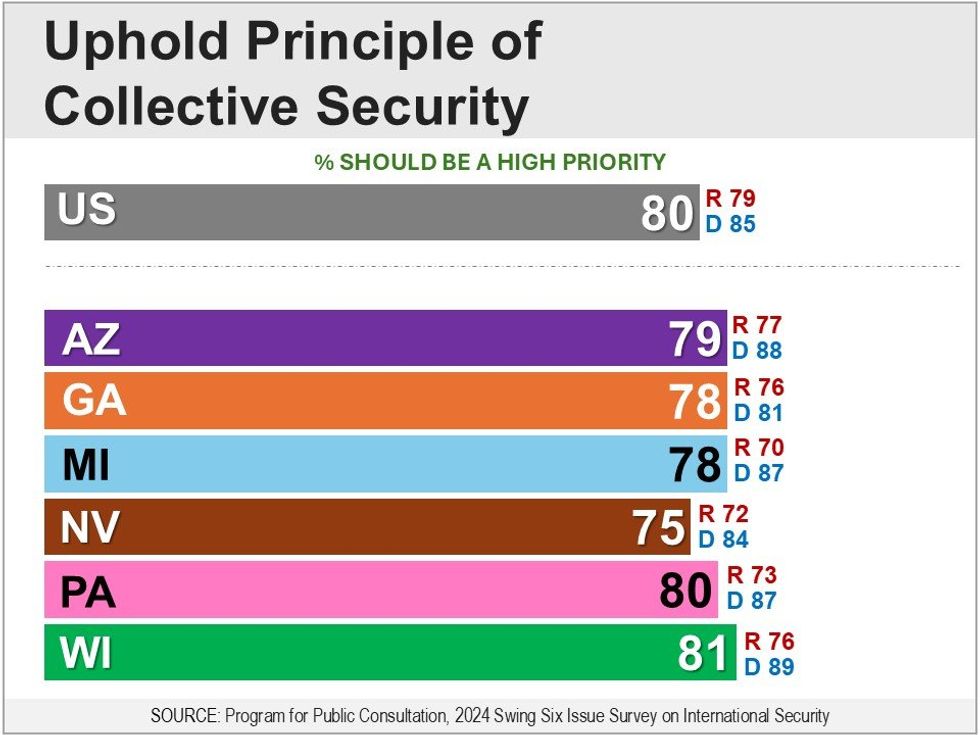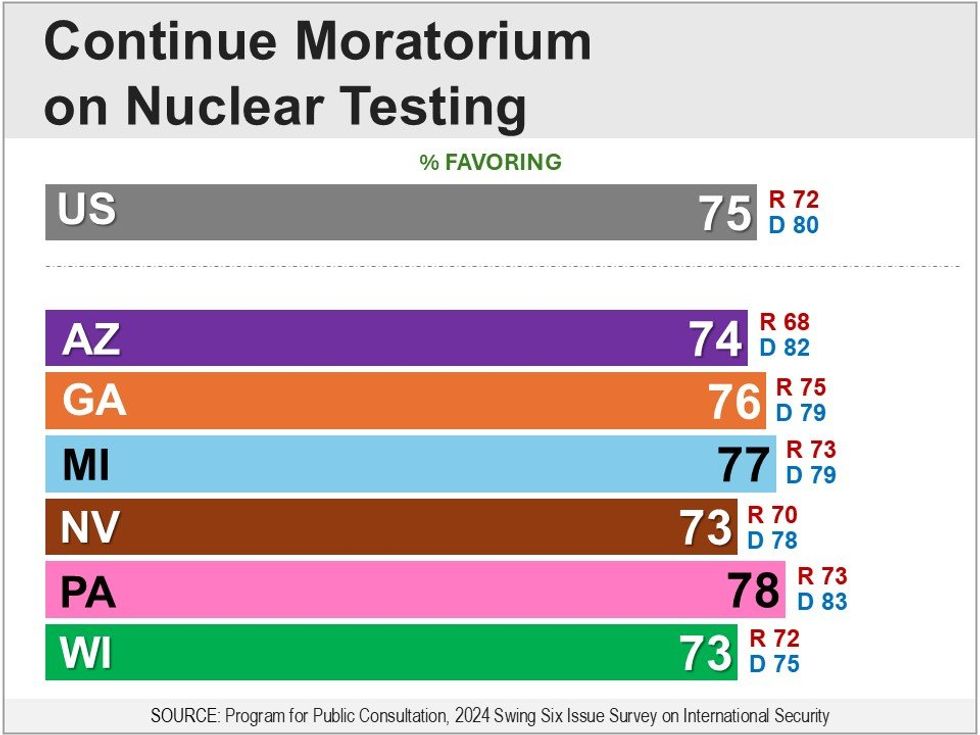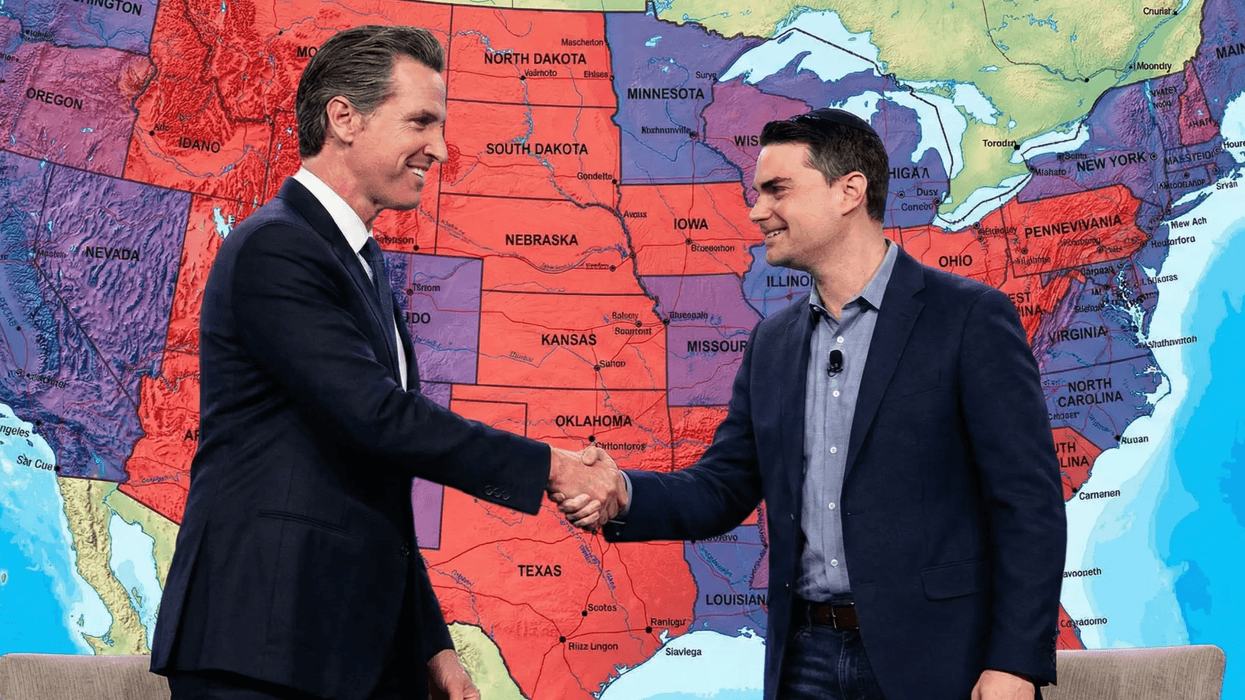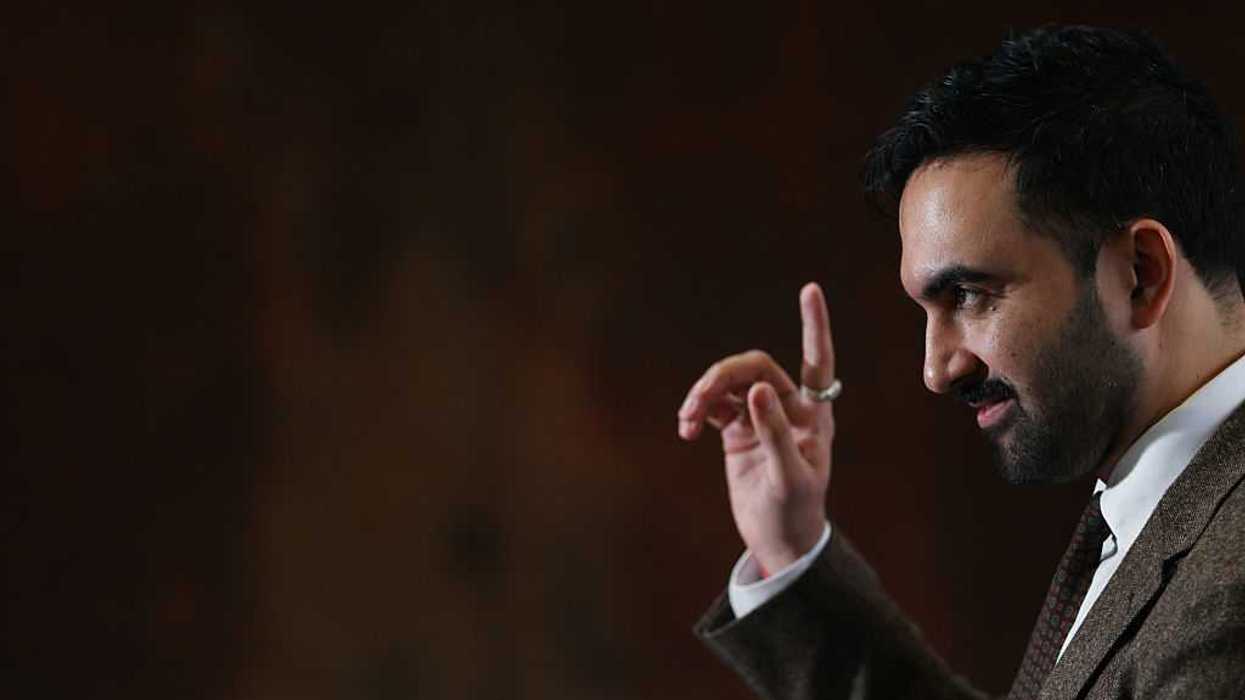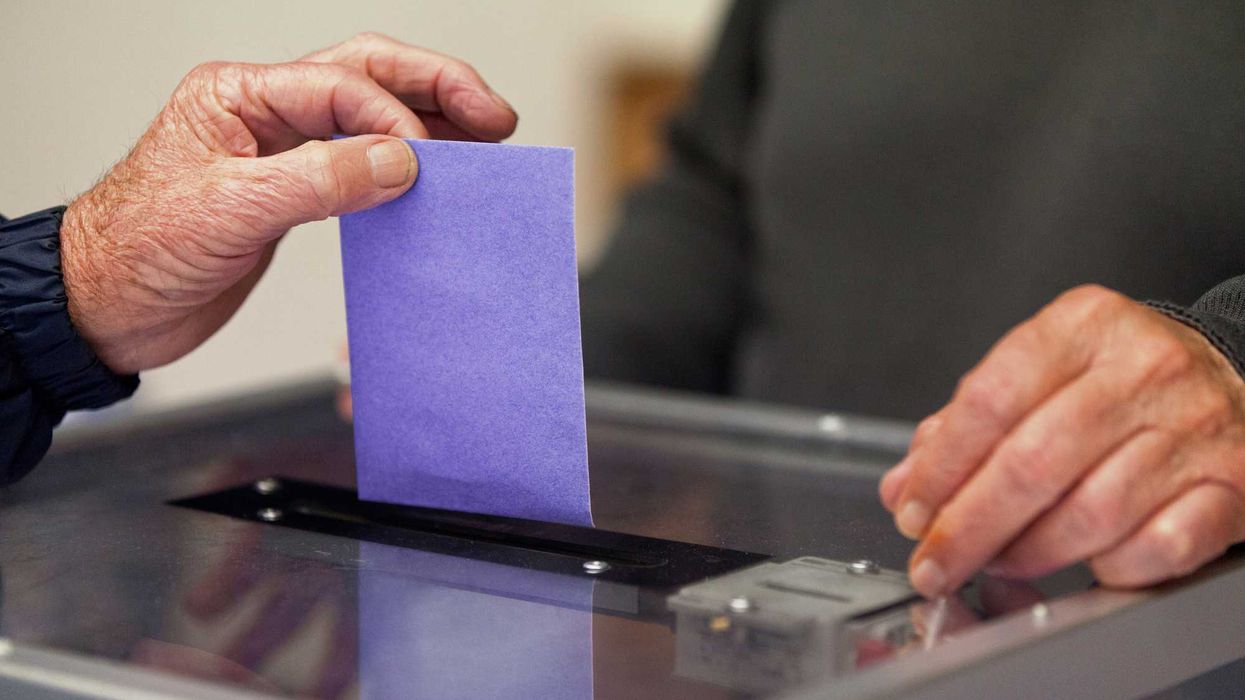Amid debates about U.S. international engagement, a new public consultation survey conducted in six swing states by the University of Maryland’s Program for Public Consultation found widespread bipartisan support for the United States continuing to provide military and humanitarian aid to Ukraine.
Majorities of both Republicans and Democrats support the U.S. upholding the principle of collective security by helping to protect nations that are under attack; continuing to be a member of NATO; and continuing to abide by the longstanding international ban on nuclear testing.
This survey is the fourth in the “Swing Six Issue Surveys” series being conducted in the run-up to the November election in swing states, and nationally, on major policy issues. Unlike traditional polls, respondents in a public consultation survey go through an online “policymaking simulation” in which they are provided briefings and arguments for and against each policy. Content is reviewed by experts on different sides to ensure accuracy and balance.
“Surveys have consistently shown that, while Americans don’t want the US to be the world policeman, they do want the U.S. to work with other countries to uphold the international order and help protect nations from aggressors,” said Steven Kull, director of the Program for Public Consultation.
The survey was fielded July 19-Aug. 2, and involved 4,628 adults, including approximately 600 in each state of Arizona, Georgia, Michigan, Nevada, Pennsylvania and Wisconsin, and 1,211 nationally.
Continuing aid to Ukraine
Large majorities in every swing state (64 percent to 71 percent), including majorities of Democrats (73 percent to 85 percent), favor the United States continuing to provide military aid to Ukraine — including weapons, ammunition, training and intelligence
A majority of Republicans in Arizona, Georgia, Pennsylvania and Wisconsin (56 percent to 60 percent) are in favor, while in Michigan and Nevada they are evenly divided. However, majorities of Republicans in Michigan (57 percent) and Nevada (60 percent) find it at least “tolerable.” Nationally, 67 percent are in favor, including majorities of Republicans (57 percent) and Democrats (79 percent).
Before coming to their conclusion, respondents were informed that the United States has already provided Ukraine with tens of billions of dollars worth of military aid and that European countries have provided an equivalent amount. Two arguments against providing aid — that European nations are responsible for taking care of this war, and that, by engaging, the United States risks escalation to nuclear war — were found convincing by about six in 10. But the two arguments in favor — that U.S. engagement is necessary to prevent Russia from further aggression, and to uphold the international order based on national sovereignty — were both found convincing by larger majorities of around eight in 10.
The U.S. continuing to provide humanitarian aid to Ukraine — including food, shelter and assistance to repair infrastructure — is favored by large bipartisan majorities in every swing state (71 percent to 75 percent), including 60 percent to 69 percent of Republicans and 76 percent to 88 percent of Democrats. Nationally, 74 percent are in favor (Republicans 65 percent, Democrats 84 percent).
Upholding collective security
Bipartisan majorities say it should be a high priority for the United States to uphold the principle of collective security, which says that when a country comes under attack, other countries should join together to help defend it, through military force and/or economic sanctions.
Support ranges from 75 percent to 81 percent in the swing states, including 70 percent to 77 percent of Republicans and 81 percent to 89 percent Democrats, as well as 80 percent nationally.
Maintaining U.S. membership in NATO
Respondents were given a briefing on the Western military alliance NATO and how it includes “a key section, called Article 5, which says that NATO members regard an attack on any member as an attack on all and that all members will defend any member that is attacked.” The United States continuing to be part of NATO is favored by bipartisan majorities of 76 percent to 81 percent in the swing states, including 72 percent to 77 percent of Republicans and 83 percent to 89 percent of Democrats, as well as 78 percent nationally.
Continuing a moratorium on nuclear testing
Recently, the debate over nuclear weapons testing has been reignited by calls for the U.S. military to restart testing. The United States, Russia, China, France and the United Kingdom have all had moratoriums on testing for three decades, as part of the Comprehensive Nuclear Test-Ban Treaty.
Bipartisan majorities of 73 percent to 78 percent in the swing states said the United States should continue its moratorium on nuclear testing. Support includes 68 percent to 75 percent of Republicans and 75 percent to 83 percent of Democrats in the swing states, as well as 75 percent nationally.





